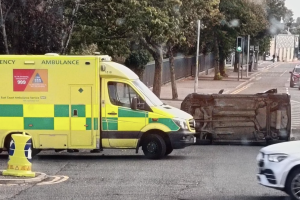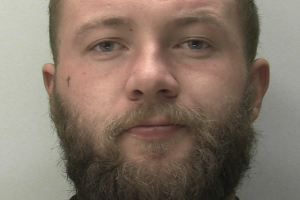In a bold move to protect children and vulnerable adults, the UK government is set to introduce two groundbreaking criminal offences under the Crime and Policing Bill next week. Aimed at tackling the growing issues of Child Criminal Exploitation (CCE) and cuckooing, these measures form part of the government’s Plan for Change to create safer streets and strengthen protections for society’s most at-risk individuals.
The new laws will criminalize adults who exploit children for illegal purposes—such as county lines drug trafficking and organized theft—and will also target criminals who take over vulnerable individuals’ homes for illicit activities, a practice known as cuckooing.
Tackling Child Criminal Exploitation
The first of the two new offences focuses on adults who coerce, manipulate, or force children into criminal activities. Current figures from the National Crime Agency estimate that 14,500 children were at risk or already involved in criminal exploitation during 2023-2024. However, experts warn that this number is likely an underestimation due to widespread underreporting.
Until now, legal systems have struggled to hold perpetrators accountable, often punishing exploited children rather than the criminals exploiting them. The new CCE offence will carry a maximum penalty of 10 years in prison, sending a strong message that exploiting children for criminal gain will not be tolerated.
Home Secretary Yvette Cooper emphasized the urgency of the reform, stating:
“The exploitation of children and vulnerable people for criminal gain is sickening, and we must eradicate it from our streets. These new laws will help us protect those who are most at risk while ensuring that perpetrators face the full force of the law.”
Alongside the CCE offence, courts will now have the power to issue Child Exploitation Prevention Orders. These orders can restrict individuals suspected of exploiting children from contacting minors or working in certain environments. Violating these orders could result in a five-year prison sentence.
Cracking Down on Cuckooing
The second offence targets the increasingly prevalent crime of cuckooing, where criminals take over the homes of vulnerable individuals—often those with disabilities, mental health issues, or substance abuse problems—to use the property for illegal activities, such as drug dealing or trafficking. Under the new law, cuckooing will be punishable by up to five years in prison.
Dame Rachel de Souza, the Children’s Commissioner for England, highlighted the importance of addressing such hidden crimes:
“Too many child victims and vulnerable adults are ignored. These measures will help professionals intervene earlier and prioritize safeguarding over punishment.”
Widespread Support for the Reforms
The introduction of these offences has been widely welcomed by child protection advocates and community leaders.
Baroness Anne Longfield, from the Centre for Young Lives, called the CCE offence “long overdue”, adding:
“The ruthless exploitation of vulnerable children has devastated families and communities for far too long. This law will save lives and help put an end to the cycle of abuse.”
Mark Russell, CEO of The Children’s Society, praised the shift in accountability:
“For years, exploited children have been treated as criminals rather than victims. This standalone CCE offence rightly puts the responsibility on the perpetrators and sends a clear message that this will no longer be tolerated.”
Russell also emphasized the need for robust enforcement and improved training for safeguarding professionals to ensure the laws achieve their intended impact.
A Comprehensive Approach to Safeguarding
The Crime and Policing Bill also includes additional reforms aimed at improving child and adult safeguarding. These measures include the introduction of a unique identifying number for every child to help authorities better track those at risk and ensure consistent support across regions—addressing what experts have described as a “postcode lottery” in care services.
Yvette Cooper reiterated the government’s commitment to a holistic approach, stating:
“These reforms are not just about harsher penalties—they’re about early intervention, prevention, and ensuring victims are supported, not criminalized.”
Community and Professional Response
The proposed laws have sparked hope among frontline workers and communities affected by these crimes. In particular, organizations working in high-risk areas have applauded the new offences, which they say will empower local authorities and law enforcement to intervene more effectively.
However, some experts have called for a statutory definition of Child Criminal Exploitation to ensure that the new offence is applied consistently across the UK.
Dr. Emily Baker, a criminologist at the University of Manchester, explained:
“Without a clear, statutory definition, there’s a risk that these new laws could be applied unevenly. A unified approach will ensure that all children receive the protection they deserve, regardless of where they live.”
Looking Ahead
The Crime and Policing Bill represents a significant step forward in the UK’s efforts to combat child exploitation and safeguard vulnerable adults. As these laws come into effect next week, communities and law enforcement agencies will be watching closely to see how they are implemented—and whether they deliver on the promise of safer streets and stronger protections.







































